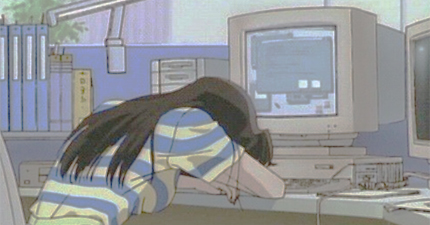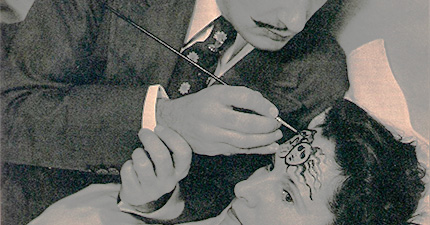There is no such thing as masculine or feminine “energy.” What the hell is masculine or feminine “energy”?
I know what energy is. Energy is the movement of electrons. You have what’s commonly called positive energy when there is an absence of electrons to protons and you have what’s commonly called negative energy when there is a presence of electrons to protons. However, you have to remember that the naming of these energy particles are speculative. Electrons are not really negative or represent what we commonly associate with negativity—melancholy, passivity, darkness. Electrons are just...particles.
I know what people are saying when they say masculine or feminine “energy.” They’re not talking about the social performance of gender but about the feelings that these gender representations create in themselves. They’re talking about their own reactions to gender. When we assume that our own emotional responses to gender are universal and use spiritually essentialist vocabulary to describe them, we are imposing our own reactions on others.
The western system of gender is not, in any way, related to the i ching or to yin and yang. I know that when we talk about the west that we often talk about it being overly binary or linear but the western system of gender is not actually that binary or linear. The west is more of a collage without any real structure but with the appearance of logic. The western concept of womanhood, for example, was a very recent invention and it was invented to describe white women. Woman was imagined to be a gentler and more sensitive category of being and this sensitivity was conflated with whiteness. This sensitivity did not exclude white men though white men sometimes contrasted themselves to white women to imagine themselves as protectors of whiteness instead of embodying whiteness.
Yin and yang are not about western gender norms. Yin and yang have their own gender baggage from the cultural context that it developed in. Yin and yang is not static but has varied meanings in different time periods. Sometimes, yin and yang is confucian and other times, it is daoist. Yin and yang are not monolithic but syncretistic. You will never get a straight answer about what yin and yang is because yin and yang are not straight. Yin and yang is not validated by its historical usage but conflicted by it.
Yin and yang is a dichotomy, which is something that’s very different from a binary. Binaries polarize a topic to reinforce a pre-existing structure. Dichotomies contrast orientations around a topic and suggest that there is no truth in either orientation but that there is only truth is contradiction. Dichotomies are logic games that help us do the work of thinking. Binaries are aesthetic shortcuts that replace thinking.
When you think of yin and yang as a binary, you play that old game of reusing asian motifs to reinforce the west. When you use yin and yang as a dichotomy, you can use it to disassemble the west. Don’t use yin and yang to talk about western gender norms. I have no attachment to the cultural purity of yin and yang but using it to talk about western gender norms is the most unimaginative thing you could do.
1 of 211
>>>


